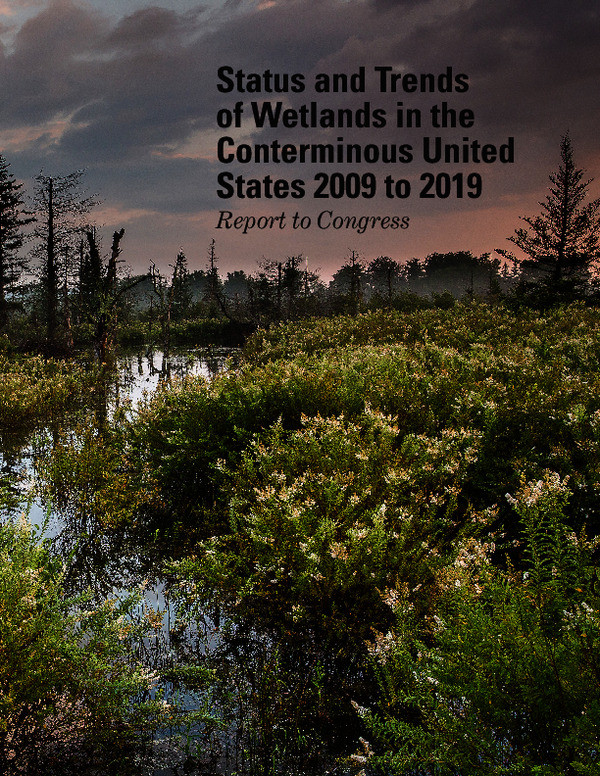From the Open-Publishing Calendar
From the Open-Publishing Newswire
Indybay Feature
Shocking Federal Report Finds 50% Wetlands Loss
WASHINGTON, March 22, 2024 — The U.S. Fish and Wildlife Service today released a required report to Congress that shows the dire status of America’s wetlands and highlights the urgent need for more protections.
Today’s report found that the lower 48 states have lost 50% of their wetlands since the 1780s. The rate of wetland loss has accelerated by 50% since 2009, amounting to a net loss of 670,000 acres — an area about the size of Rhode Island.
The report notes that these findings are conservative estimates of the actual effects of human, climate and other drivers of wetland loss.
“There couldn’t be a clearer, more heartbreaking sign that something is terribly wrong with the federal system for protecting wetlands,” said Meg Townsend, freshwater attorney at the Center for Biological Diversity. “Our most precious wildlife habitat is being annihilated, and the Fish and Wildlife Service needs to go all-out to save the millions of acres of wetlands that shelter endangered species. Losing wetlands pushes thousands of animals and plants toward extinction, harms water quality and leaves us more vulnerable to flooding and climate change.”
The losses documented in the report are particularly concerning because the U.S. Supreme Court substantially undercut wetland protections in 2022 with the Sackett decision. That decision stripped wetlands of protections that had been in place since the Clean Water Act was passed in 1972, leaving even more wetlands vulnerable to further loss.
The report highlights that while the United States established a “No Net Loss” goal for wetlands more than 35 years ago, that goal has not been achieved. The report recommends achieving “No Net Loss” of wetlands as one of four key strategies, along with developing better geospatial data and tools to monitor and protect wetlands.
“Creating more critical habitat protections for wetland-dependent endangered species is an obvious step for Fish and Wildlife Service to take in response to this report’s findings,” said Townsend. “Safeguarding our wetlands is more urgent now than ever, as fresh water is the most important element for life on Earth. We have to act quickly to reverse these trends of wetland loss, particularly as we face more intense natural disasters, sea-level rise, and the increasing need for clean, abundant fresh water.”
The Center for Biological Diversity is a national, nonprofit conservation organization with more than 1.7 million members and online activists dedicated to the protection of endangered species and wild places.
https://biologicaldiversity.org/w/news/press-releases/shocking-federal-report-finds-50-wetlands-loss-2024-03-22/
The report notes that these findings are conservative estimates of the actual effects of human, climate and other drivers of wetland loss.
“There couldn’t be a clearer, more heartbreaking sign that something is terribly wrong with the federal system for protecting wetlands,” said Meg Townsend, freshwater attorney at the Center for Biological Diversity. “Our most precious wildlife habitat is being annihilated, and the Fish and Wildlife Service needs to go all-out to save the millions of acres of wetlands that shelter endangered species. Losing wetlands pushes thousands of animals and plants toward extinction, harms water quality and leaves us more vulnerable to flooding and climate change.”
The losses documented in the report are particularly concerning because the U.S. Supreme Court substantially undercut wetland protections in 2022 with the Sackett decision. That decision stripped wetlands of protections that had been in place since the Clean Water Act was passed in 1972, leaving even more wetlands vulnerable to further loss.
The report highlights that while the United States established a “No Net Loss” goal for wetlands more than 35 years ago, that goal has not been achieved. The report recommends achieving “No Net Loss” of wetlands as one of four key strategies, along with developing better geospatial data and tools to monitor and protect wetlands.
“Creating more critical habitat protections for wetland-dependent endangered species is an obvious step for Fish and Wildlife Service to take in response to this report’s findings,” said Townsend. “Safeguarding our wetlands is more urgent now than ever, as fresh water is the most important element for life on Earth. We have to act quickly to reverse these trends of wetland loss, particularly as we face more intense natural disasters, sea-level rise, and the increasing need for clean, abundant fresh water.”
The Center for Biological Diversity is a national, nonprofit conservation organization with more than 1.7 million members and online activists dedicated to the protection of endangered species and wild places.
https://biologicaldiversity.org/w/news/press-releases/shocking-federal-report-finds-50-wetlands-loss-2024-03-22/
For more information:
https://biologicaldiversity.org/
Add Your Comments
We are 100% volunteer and depend on your participation to sustain our efforts!
Get Involved
If you'd like to help with maintaining or developing the website, contact us.
Publish
Publish your stories and upcoming events on Indybay.
Topics
More
Search Indybay's Archives
Advanced Search
►
▼
IMC Network



